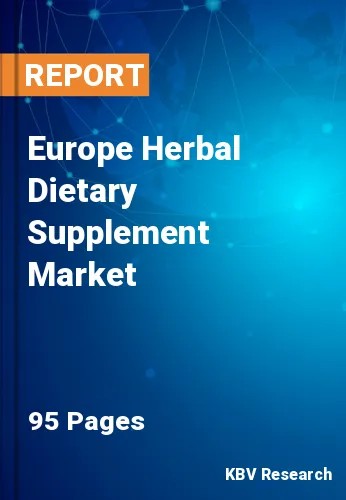The Europe Herbal Dietary Supplement Market would witness market growth of 6.3% CAGR during the forecast period (2024-2031).
The Germany market dominated the Europe Herbal Dietary Supplement Market, by Country in 2023, and would continue to be a dominant market till 2031; thereby, achieving a market value of $1,699.1 Million by 2031. UK market is exhibiting a CAGR of 5.4% during (2024 - 2031). Additionally, The France market would experience a CAGR of 7.4% during (2024 - 2031).

Certain herbs are believed to have preventive properties against specific health conditions. For instance, garlic supplements are often taken to lower cholesterol levels, and cranberry supplements are used to prevent urinary tract infections.
Moreover, in complementary medicine, herbal supplements and conventional treatments support healing and alleviate symptoms. Examples include the use of ginger for nausea relief during chemotherapy or the use of St. John’s wort for mild to moderate depression.
Chronic diseases such as cardiovascular diseases, diabetes, cancer, and respiratory conditions contribute to high mortality rates in Europe. These health challenges underscore the importance of preventive healthcare and lifestyle management, prompting consumers to seek natural health solutions, including this. Additionally, according to Eurostat, in 2020, diseases of the respiratory system accounted for 347,867 deaths in the EU, representing 6.7% of all deaths among residents.
Free Valuable Insights: The Global Herbal Dietary Supplement Market will Hit USD 18.3 Billion by 2031, at a CAGR of 6.9%
Based on End User, the market is segmented into Home Use, Clinics, and Hospitals. Based on Product Type, the market is segmented into Tablets & Capsules, Powders, Shakes, and Others. Based on countries, the market is segmented into Germany, UK, France, Russia, Spain, Italy, and Rest of Europe.
By End User
By Product Type
By Country
Our team of dedicated experts can provide you with attractive expansion opportunities for your business.

